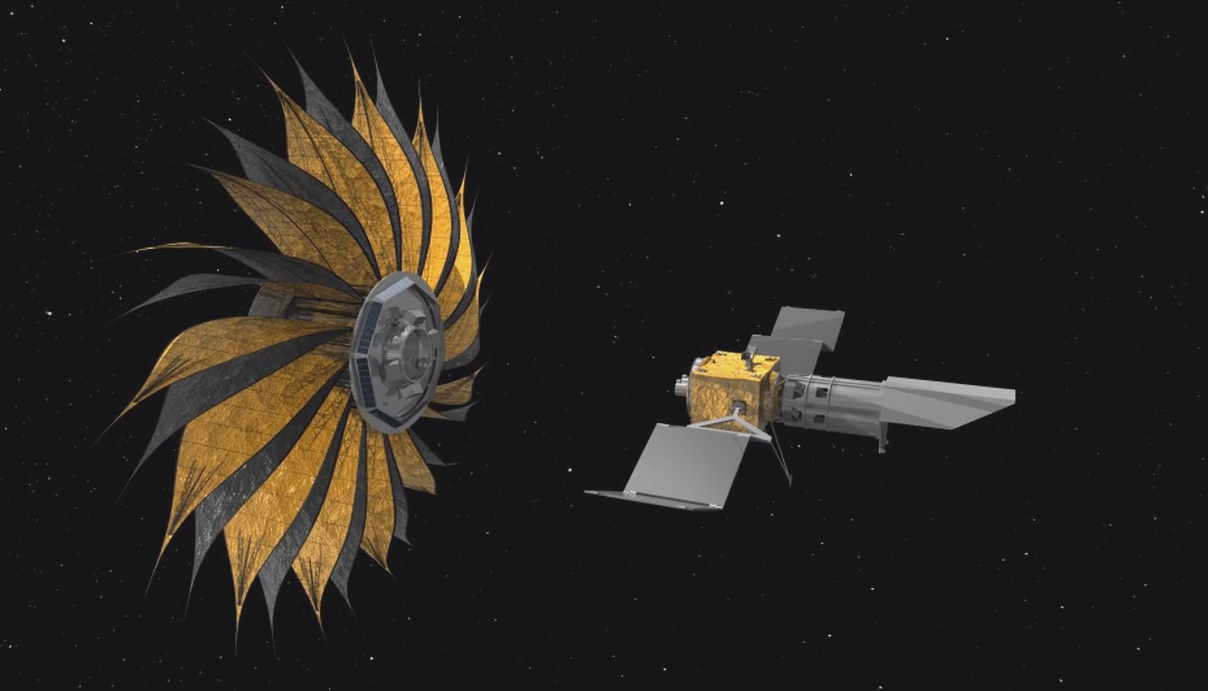To assist with future efforts to locate and study exoplanets, engineers with NASA’s Jet Propulsion Laboratory – in conjunction with the Exoplanet Exploration Program (ExEP) – are working to create Starshade. Once deployed, this revolutionary spacecraft will help next-generation telescopes by blocking out the obscuring light coming from distant stars so exoplanets can be imaged directly.
mollwollfumble said:
Tau.Neutrino said:
In Order to Reveal Planets Around Another star, a Starshade Needs to Fly 40,000 km Away from a Telescope, Aligned Within Only 1 MeterTo assist with future efforts to locate and study exoplanets, engineers with NASA’s Jet Propulsion Laboratory – in conjunction with the Exoplanet Exploration Program (ExEP) – are working to create Starshade. Once deployed, this revolutionary spacecraft will help next-generation telescopes by blocking out the obscuring light coming from distant stars so exoplanets can be imaged directly.
When the starshade is closer, it’s called a coronagragh. There’s one installed on the James Webb. Checking the web, yes there is at least one installed on the Hubble as well.
But as they say, further is better.

That’s huge! And stars as seen from here are unbelievably tiny. Alpha Centauri is only 0.007 arc seconds across and Proxima only 0.001 arc seconds across, and those are really close by star standards. Why such a big starshade?
I do sort of understand why it’s petal shaped. Diffraction related. That’s useless though if the light diffracts off the struts holding the telescope’s secondary mirror in place, so something would have to be done about that.
Ideally it should be four layers thick, like the sunshade on the James Webb.